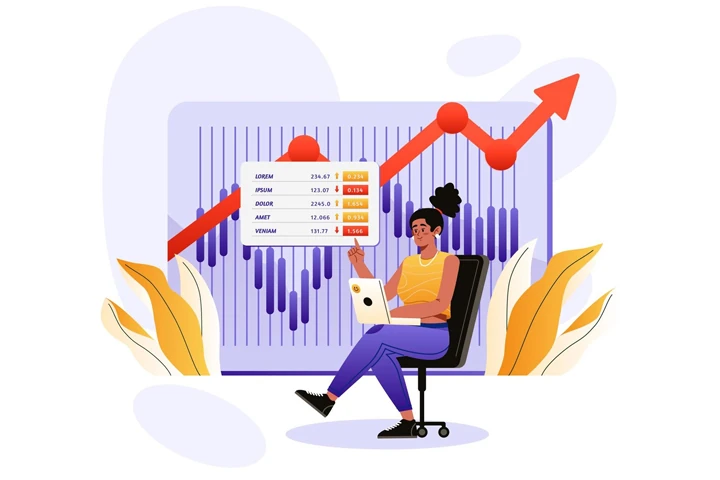Elections in India are not merely political events; they are seismic shifts that reverberate through the financial markets, leaving investors gripping their seats on a rollercoaster ride of uncertainty and opportunity. With each election cycle, the stock markets become a battleground of speculations, driven by the ebb and flow of political fortunes. Let’s embark on a journey to unravel the intricate dance between Indian elections and financial markets.
Increased Volatility: Uncertainty Unleashed
The cornerstone of market volatility during elections is uncertainty. Investors grapple with the ambiguity surrounding the election outcome, pondering potential shifts in government policies, regulations, and spending. This uncertainty acts as a catalyst for wild swings in stock prices, as investors hastily recalibrate their portfolios to brace for potential changes in the economic landscape.
The pre-election period is marked by heightened anxiety as investors meticulously dissect opinion polls, scrutinize campaign promises, and weigh potential policy shifts. This heightened scrutiny often leads to short-term volatility in the markets, as investors navigate the turbulent waters of election-induced uncertainties.
Investor Behavior: Navigating Pre and Post-Election Waters
Pre-Election Jitters:As elections loom closer, investors adopt a cautious stance. They tread carefully, wary of the looming specter of uncertainty. Analysts pore over every political development, trying to decipher its implications for the financial markets. The stock market becomes a barometer of sentiment, fluctuating with every twist and turn in the political landscape.
Post-Election Reactions:Once the dust settles and election results are announced, markets tend to stabilize. Historically, we’ve witnessed positive returns within three months post-election, as investor confidence in the new government’s stability takes root. The uncertainty dissipates, paving the way for more stable market conditions. Investors breathe a collective sigh of relief as the fog of uncertainty lifts, and they gain clarity on the road ahead.
Long-Term Impact: Policies Over Politics
While elections may spark short-term market fluctuations, the long-term impact hinges more on the policies implemented by the winning party. Economic reforms and government spending patterns wield significant influence over various sectors and industries. Investors keenly observe these policy shifts, positioning their portfolios to capitalize on emerging opportunities.
The economic agenda of the ruling party becomes a compass for investors, guiding their investment decisions in the long run. Policies aimed at boosting economic growth, infrastructure development, and ease of doing business are met with optimism, driving investments in sectors poised to benefit from these reforms.
Foreign Investment: The Global Lens
Foreign investors closely monitor Indian elections, seeking signs of political stability and policy continuity. A stable government with clear-cut policies becomes a magnet for foreign direct investment (FDI) and portfolio investments. Conversely, election-induced uncertainty can deter foreign investors, triggering capital outflows and currency fluctuations.
The Indian rupee often bears the brunt of election-induced volatility, with exchange rates fluctuating in response to changes in investor sentiment and foreign investment flows. A favorable election outcome can strengthen the rupee, while uncertainty or unfavorable outcomes can lead to depreciation.
Case Studies: Learning from History
A retrospective glance at past elections offers valuable insights into market dynamics:
- 2014 and 2019 General Elections: The return of the BJP-led NDA to power in both instances fueled optimism among investors, driving significant market rallies. Investors cheered the prospects of pro-business policies and economic reforms, propelling the stock markets to new heights.
- Historical Context: From the tumultuous coalition era to the stable governance of the NDA, each election cycle has left its mark on financial markets, underscoring the critical interplay between politics and economics. The markets have weathered political storms and celebrated economic triumphs, reflecting the resilience and dynamism of India’s financial ecosystem.
In conclusion, Indian elections are a pivotal juncture for financial markets and investors alike. While short-term volatility may unsettle markets, savvy investors with a long-term perspective view this as an opportune moment to recalibrate their portfolios. By understanding the nuances of election-induced market fluctuations and staying attuned to policy shifts, investors can navigate the tumultuous waters of Indian elections with confidence.
Elections may be a rollercoaster ride, but for astute investors, they offer a thrilling opportunity to ride the waves and emerge stronger in the ever-changing landscape of Indian financial markets. As we brace for the next electoral spectacle, let us harness the power of knowledge and foresight to navigate the twists and turns of Indian democracy with resilience and conviction.











































